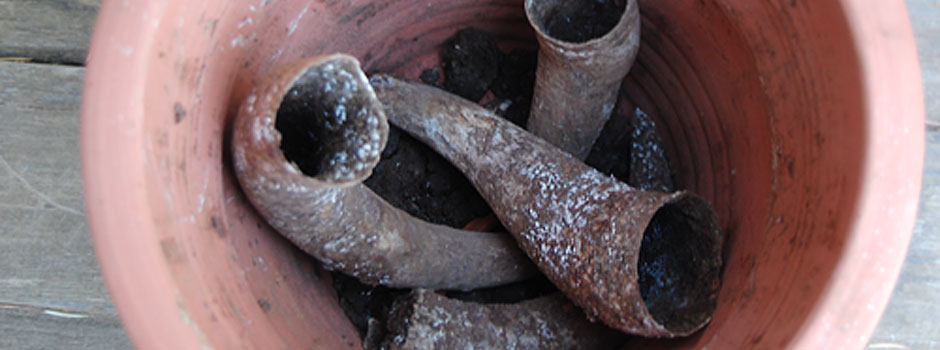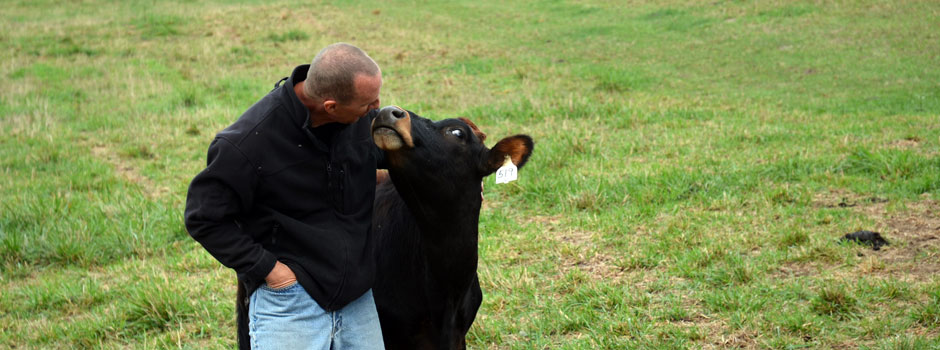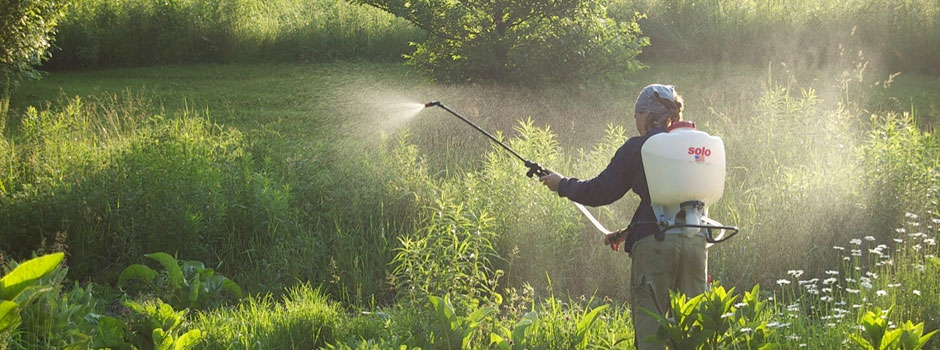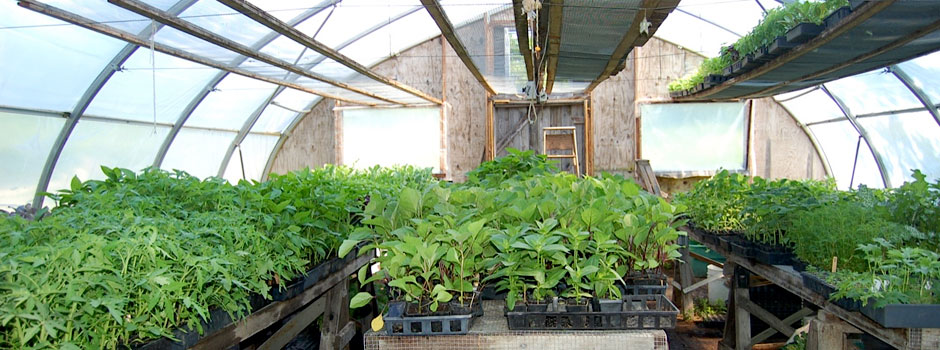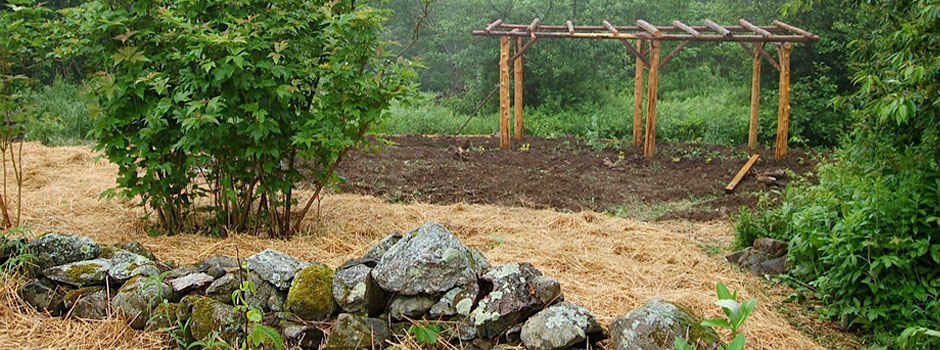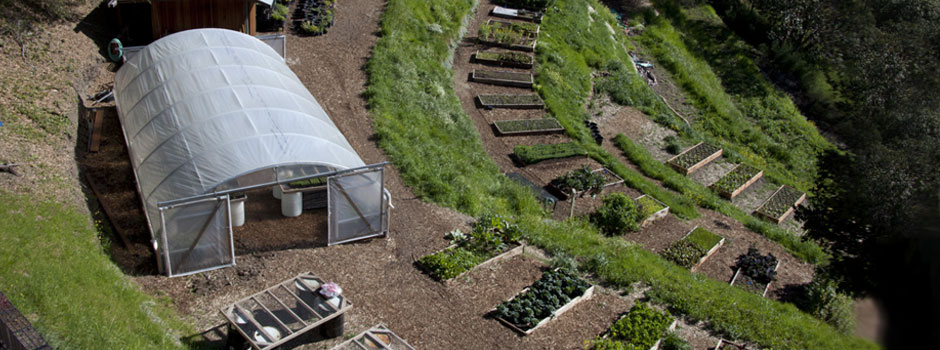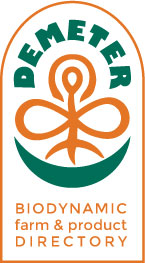“Healing people and the planet through agriculture”
DemeterLOCAL
A peer-to-peer Biodynamic® education and certification program
The goals of DemeterLOCAL are to encourage Biodynamic farming and certification and promote the growth of regional Biodynamic food sheds. DemeterLOCAL will accomplish these goals by fostering farmer and consumer education, empowering peer-to-peer certification, and localizing the administrative requirements resulting in a more cost effective education and certification program.
In order to qualify for Demeter certification, the farm’s Biodynamic production must be sold within a 200- mile radius of the farm. Exceptions may be made for non-profits whose agricultural production functions to further the Biodynamic movement on a regional or national level.
Groups may be comprised of farmers, apprentices, educators and others interested in Biodynamic farming. These groups will naturally express the local ecology and cultural landscape.
The US Demeter Biodynamic Farm Standard outlines 7 core principles that provide an excellent foundation for education on the principles and practices of Biodynamic agriculture. Utilizing the Standard as a guideline for farm improvement, the farmers within DemeterLOCAL chapters can also provide peer-to-peer verification that the Standard has been met, allowing for Biodynamic® certification.
Demeter LOCAL groups can take on various forms. Current examples include:
* Farmer to farmer model- farmers in a given local food shed form a group and work with each other to exchange knowledge and verify that the Demeter Biodynamic Farm Standard has been met if there is interest in Demeter certification. Farmers visit farmers.
* Education institution model- An educational institution utilizes interested local farms as a living classroom to teach students Biodynamic agriculture. Students visit farmers and, using the Demeter Biodynamic Farm Standard as base curriculum, can also verify that the standard has been met for Demeter certification.
* CSA model- The membership of a CSA identifies members with agricultural expertise and visits their farm utilizing the Demeter Biodynamic Farm Standard to understand and connect to the agriculture that produces their food. In this process the core CSA value of connecting the consumer to the farms that produces their food is intimately achieved and the CSA farm can gain Demeter certification.
DemeterLOCAL requires three components:
The Farmer
- Reviews, understands, and supports the Demeter Farm Standard
- Farms in compliance with its principles and practices
- Abides by the DemeterLOCAL policies and procedures
- Agrees to be visited on an annual basis by other farmers from the LOCAL group and should participate as a Farm Evaluator
The DemeterLOCAL Chapter
- Works with Demeter to define geographic boundary and structure
- Appoints representative responsible for communication with Demeter
- Chooses and oversees Farm Evaluators
- Facilitates and coordinates farm visits
- Assists in educational efforts for farmers and community
- Forwards certification recommendations and required paperwork to Demeter office
The Demeter office
- Approves composition and geographic boundaries of LOCAL groups and acts as conduit of educational materials and communications between and across groups
- Approves all Farm Evaluators
- Provides certification requirements of the Demeter Farm Standard
- Provides necessary forms and paperwork
- Makes all final Biodynamic® certification decisions
DemeterLOCAL Policies & Procedures:
Step 1: With assistance from Demeter and within a defined geographic region, a LOCAL group is formed composed of farmers, apprentices, educators, and consumers.
Step 2: While the LOCAL group can function broadly as an educational and promotional body, individuals within the group must be identified who are willing and capable to participate as Farm Evaluators who will assess and make recommendations for crop and farm improvements based on the Demeter Biodynamic® Farm Standard. Two Farm Evaluators are required for each farm visit, one of which must be a participating farmer him/herself. In addition to their knowledge about Biodynamic farming and the Farm Standard certification requirements, all evaluators must have a sound understanding of agriculture and knowledge about the agricultural concerns and challenges within that geographic region.
The context of these farm visits is as important as the evaluations being conducted: carried out as a conversation whose intent is to share experience, knowledge and ideas in order to enhance the farming methods and increase the quality of its food products. In order to facilitate conversation and ensure consistency between farm evaluations, a checklist will be covered that outlines the Demeter Farm Standard core principles and practices.
Step 3: If a farm seeks Demeter certification- a requirement if the farmer wants the farm or its products to be referred to as “Biodynamic” in the marketplace- the checklist is submitted to the LOCAL group or directly to the Demeter office. The results of the farm visit are reviewed, recommendations for improvements made. The evaluators and the farmer sign and date the checklist and submit it to Demeter along with the LOCAL group’s endorsement. If the LOCAL group does not recommend the farm for certification, the farmer may take the matter up with Demeter directly. Demeter alone makes the final certification decision.
Step 4: The Demeter office reviews the checklist to verify whether or not the Demeter Farm Standard is being met. Any needed clarifications are also requested at this point. Once all the necessary information is in place Demeter decides for or against Demeter certification. If decision to grant Demeter certification is made Demeter and the farmer signs the “Terms of Agreement” and a Demeter certificate is issued. Demeter reserves the right to send out an inspector should it require, for whatever reason, third party verification. Once certified, the farm is encumbered by the same policies & procedures of any Demeter member, regardless of the type of inspection process. Re- certification must take place on an annual basis.
Fees and Costs:
For those participants in a LOCAL group who wish to be certified Biodynamic, an application fee and possible licensing fee will be assessed. It is our intention to make these costs as reasonable as possible, while still allowing the Demeter office to recoup some of the administrative expense associated with the launch of the regional groups and the processing of the applications.
Fee: $300 per annual application
Licensing Fee: Assessed at .05% of gross sales over $100,000 per year.
In the Netherlands, a peer review method for farmers arose as an alternative to the Biodynamic certification system, allowing farmers to experience the power of collaboration.
By collectively observing and discussing site-specific challenges, these biodynamic farmers experience first-hand the power of collaboration and drive commitment to sustainability beyond the standards of biodynamic certification.
Read more:
"Farm Talks in Biodynamic Agriculture" pdf (535kb)
